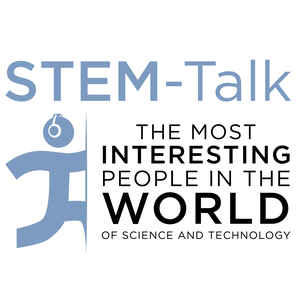Episode 183: Michael Schmidt on the challenges of building a space-faring civilization
Today we have the second installment of our interview with Dr. Michael A. Schmidt, the founder, CEO, and Chief Scientific Officer of Sovaris Aerospace, a company focused on assessments and solutions applied to humans in space and extreme environments on Earth.
In today’s interview, we talk to Michael about NASA’s plans to send humans to Mars and build permanent colonies on the Moon and Mars. We also talk to Michael about his recent book, “Building a Space-Faring Civilization,” which addresses the challenges of civilian spaceflight and the construction of space settlements.
In part one of our interview, Episode 182, we talked with Michael about his pioneering work in the field of precision medicine and how he has used it to improve the cognitive and physical performance of astronauts as well as NBA, NFL players and Special Operations forces.
In addition to his work with Sovaris, Michael also is a professor of aerospace medicine at the University of Central Florida College of Medicine, one of the few programs in the U.S. that offers a medical residency in aerospace medicine.
Show notes:
[00:03:00] Dawn picks up our interview from where we left off in part one, discussing the Human Research Program for Civilian Spaceflight. She goes on to mention that Chris Mason at Cornell University has a biobank of 1,500 samples across 22 astronauts and seven missions, and that these samples will lead to deeper insights on the effects of spaceflight on humans. Dawn switches gears to ask Michael about the cognitive and physical challenges of spaceflight over long duration missions.
[00:13:03] Following up on the cognitive challenges of long duration spaceflight, Ken mentions that the hippocampus, the primary memory center of the brain, has a relatively low radiation threshold compared to other tissues in the brain. Ken asks Michael to touch on the vulnerability of specialized brain tissues to radiation, particularly in the context of a long duration spaceflight to Mars.
[00:21:53] Ken mentions that it is understood that the APOE4/4 genotype is associated with impaired cognitive performance under certain circumstances and an elevated risk of dementia. While it is currently unknown whether APOE4/4 has any correlation of increased risk associated with cognitive impact resultant from environmental exposure due to spaceflight, Ken highlights the concern with sending APOE4/4-positive astronauts on long duration spaceflights without knowing the risks.
[00:29:26] Ken notes the worsened cognitive impacts resultant from medical radiation, and while therapeutic radiation is different than radiation experienced by astronauts, these results give some indication of the effects astronauts might experience.
[00:33:27] Dawn mentions that we recently had planetary scientist and director of NASA’s Haughton-Mars project, Pascal Lee, on the podcast, who explained his view that since there are so many engineering and biological challenges with going to Mars, we should take a more measured approach to a Mars mission, perhaps even beginning with a roundtrip to Mars rather than landing on our first visit. Dawn asks Michael what his thoughts are on this approach.
[00:37:29] Ken shifts the discussion to the subject of one of Mars’ moons, Phobos, and its potential role in a Mars mission.
[00:40:30] Dawn pivots to talk about Michael’s Book “Building a Space-Faring Civilization: Advancing the Renaissance of Science, Medicine and Human Performance in Civilian Spaceflight.” Dawn asks Michael to talk about the chapter concerning the question of space radiation from the standpoint of precision medicine.
[00:55:12] Dawn asks Michael to talk about the lack of appreciation people have for the fact that a Mars mission would be the most dangerous thing we’ve ever done.
[00:59:06] Ken mentions that Michael has worked with a lot of organizations, including Space X, which has a program, the Space X Mars Colonization Program,


